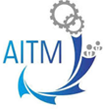Welcome to the Department of Master of Computer Applications (MCA) at Angadi Institute of Technology and Management, Belagavi.
Our department is committed to fostering a culture of continuous learning, driven by cutting-edge infrastructure and a passion for excellence. Established in 2010, our MCA department has been instrumental in empowering graduates from diverse backgrounds, including science and commerce, to make a seamless transition into the dynamic world of IT as proficient software engineers.
We pride ourselves on delivering the most effective teaching and learning methods, combining classroom instruction with hands-on practical exercises. Our primary goal is to instill a relentless curiosity in our students, encouraging them to explore the depths of the world of computer science. Our vision is to become the preferred destination in both the state and the country for aspiring computer science graduates.
At our department, we equip our students with the skills and knowledge needed to harness emerging technologies and make informed decisions in the fast-paced IT landscape. Our holistic learning experience is meticulously designed to align with industry requirements while nurturing individual career growth.
Join us on a journey of discovery, innovation, and transformation as we prepare you for a rewarding career in the ever-evolving field of computer science. Together, we will create a future where knowledge and ambition converge to shape the technology pioneers of tomorrow.
Vision
Nurture Continuous Learning through research and innovations in the field of Computer Science, Technology and Applications, to build competent professionals.
Mission
Create a learning environment to motivate students to build strong technology skills and promote value based ethical practices in all facets of learning.
HOD's Message
The MCA department at Angadi Institute of Technology and Management, Belagavi, is dedicated to fostering a culture of “Come to LEARN, Go to SERVE” through cutting-edge infrastructure and innovative teaching methods. Our commitment is to provide students with a holistic educational experience that combines classroom learning with hands-on practical exercises, nurturing their curiosity and problem-solving skills.
Our aspiration is to stand out as the top choice for computer science enthusiasts in the state. We equip our students with the knowledge and skills necessary to navigate the ever-evolving world of technology, empowering them to make informed decisions and apply the latest advancements in their careers.
At our department, learning is a comprehensive journey tailored to meet the demands of both the industry and individual career development. We invite you to embark on this transformative educational experience with us and join us in shaping the future of computer science professionals.

PEO's
PEO2: Provide software solutions that are socially acceptable and adapt emerging technologies and tools.
PEO3: Exhibit ethical and communication skills and engage in lifelong learning.
Program Outcomes PO's
PO1: Apply knowledge of mathematics and computing principles appropriately to develop conceptual model for real world problems.
PO2: Identify and formulate problem definition for real world problems, analyze the literature of the domain and provide solutions using mathematics and computing.
PO3: Design, develop and assess a software system, process, component, or program of varying complexity that meet specified needs with appropriate consideration for public health and safety and societal considerations.
PO4: Use research based knowledge to analyze and interpret data and synthesize information to provide valid conclusions.
PO5: Adapt to understand, select, use and create modern tools and technologies necessary for computing practices.
PO6: Adopt professional ethics, principles of professional computing practices, cyber regulations and responsibilities.
PO7: Recognize the need and engage in self-learning for continual development as a computing professional.
PO8: Apply the management principles for managing projects as an individual, as a member and as a leader in a team under multidisciplinary environments.
PO9: Communicate effectively about computing activities in both verbal and written form with the computing community and with society.
PO10: Assess the local and global impact of software solutions on individuals, organizations and society.
PO11: Perform effectively as an individual and as a member or leader in diverse teams and in multidisciplinary environments.
PO12: Adopt standardized software engineering practices with innovative ideas to succeed as an employee or entrepreneur.



